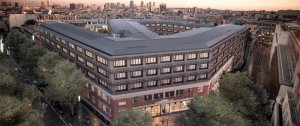Control of Active Materials by means of Addressable Soft Interfaces
Motor-proteins are responsible for transport inside cells. Harnessing their activity is key towards developing new nano-technologies or functional biomaterials. Cytoskeleton-like networks, recently tailored in vitro, result from the self-assembly of subcellular autonomous units. Taming this biological activity bottom-up may thus require molecular level alterations compromising protein integrity.
We have taken a top-down perspective consisting on tuning the anisotropic viscosity of a contacting thermotropic liquid crystal oil. We show that the seemingly chaotic flows of a tubulin-kinesin aqueous active gel with nematic-like order [1] can be forced to adopt well-defined spatial directions that correlate with the structure of the responsive oil/water interface. Different configurations of the active material are realized, when the passive liquid crystal is either unforced [2] or commanded by a magnetic field [3]. The inherent instability of the extensile active fluid (active turbulence) is thus spatially regularized, leading to organized flow patterns, endowed with characteristic length and time scales whose role is redefined under the imposed geometrical restrictions. We will also discuss the behavior of the active nematic material when confined to spherical shells. In particular, we will discuss an ongoing study in which the defects that drive flows in the active shell couple with disclinations in a surrounding passive liquid crystals.
[1] T. Sanchez, D. T. Chen, S. J. De Camp, M. Heymann, Z. Dogic. Nature, 491, 431 (2012).
[2] P. Guillamat, J. Ignés-Mullol, F. Sagués, Nat. Commun.
[3] P. Guillamat, J. Ignés-Mullol, F. Sagués, PNAS 113, 5498-5502 (2016).








